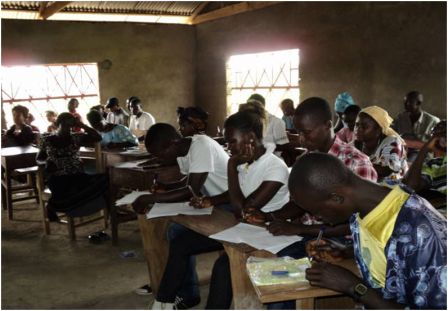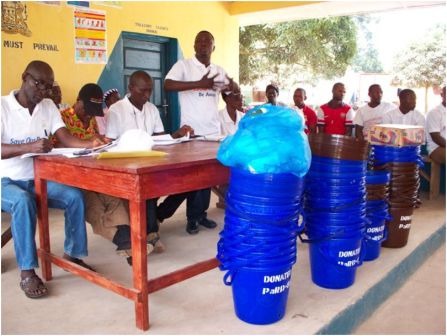PaRD Sierra Leone provides 3,000 rural youths with livelihood skills
Partners in Relief and Development Sierra Leone (PaRD SL) at 3 Big Waterloo Street. Freetown has successfully led a consortium together with Cotton Tree Foundation (CTF), and Christian Community Development Programme (CCDP), to design and implement an integrated programme of employable skills by training 3,000 rural youth in eight districts across the country. (Vulnerable rural youths in Port Loko getting education through PaRD SL and its partners)
The skills training is focused on value addition of processing Cassava, Rice and Palm Oil. The project is jointly funded by the Government of Sierra Leone and the World Bank under the supervision of Integrated Project Administration Unit (IPAU) of the Ministry of Finance and Economic Development in collaboration with the Ministry of Youth and the National Youth Commission.
Besides the consortium members, the project was implemented mainly through partnership with district councils and both private and public sectors of the economy. Private training institutions and the MAFFS Agricultural Business Centres (ABCs) were engaged to train the young people in the project districts.
There were three different types of training which were done in a participatory manner and where possible local languages used. These trainings included numeracy and literacy, book and record keeping, entrepreneurship, and livelihood skills. Livelihood skills focused on value addition on cassava, rice and palm oil processing, packaging, and marketing, to enable them to match- up with the global business trend.
The project has generated employment for some of the trained rural youths while others are on self employment as three trained beneficiaries have been employed by the Tonkolili Cooperative Union as Rice Mill Operator and Maintenance Officer; the Growth Center Development at Pujehun has also employed one of the trained beneficiaries as Production Supervisor while one female trainee had been employed as Training Assistant by Tewoh Agricultural Organisation in Kailahun.
Also, beneficiaries were put into cooperatives of 20-25 members for them to be self–employed. There were 69 cooperatives spread across all the 8 project districts.
Start–up capital has been provided to all the cooperatives to start up their own business.
Processing facilities were also built in all the districts to enable the cooperative to process their raw materials. The cooperatives were affiliated with ABCs in their respective chiefdoms to enable the cooperatives to use processing facilities at these centres. Besides the processing facilities, the project provided each cooperative with initial packaging materials. The cooperatives converted cassava into the following products: gari, foofoo, bread and rich cake.
In one of the villages only a handful of the youths could read and write as many of them in their 20’s and 30’s in the past ended up vulnerably struggling with poverty as mothers and fathers, but with the successful implementation of the project by PaRD SL many of the youths can now read and write enabling them to set up and run their own businesses.
PaRD SL has adopted a new approach to programming, shifting away from emergency/rehabilitation to stainable livelihood development, using the value chain processes focusing on food and cash crop production, processing, entrepreneurship development, packaging and marketing.
Stay with Sierra Express Media, for your trusted place in news!
© 2013, https:. All rights reserved.





